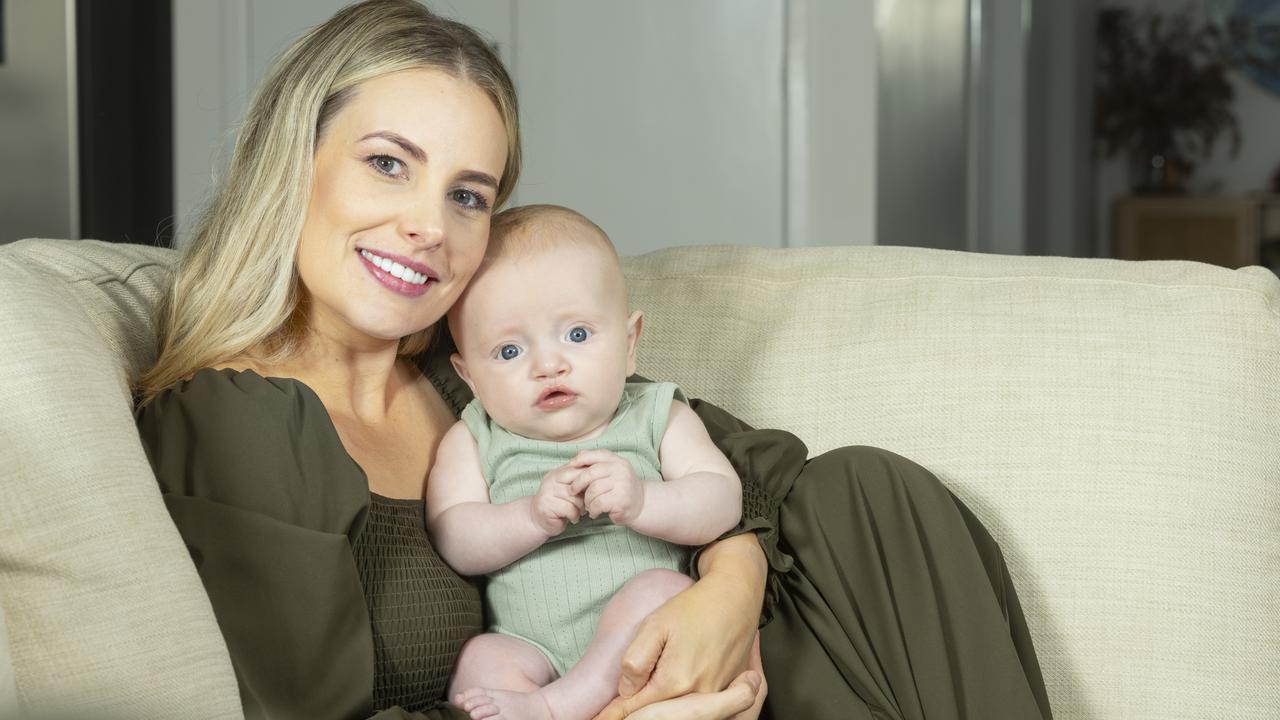Mater Research finds placenta link to stillbirths in boys
Queensland researchers have discovered the reason baby boys are at higher risk of stillbirths or serious neonatal health problems.

Lifestyle
Don't miss out on the headlines from Lifestyle. Followed categories will be added to My News.
With more baby boys than girls being stillborn and having serious neonatal health problems, Queensland researchers have discovered the reason could be a dysfunction in the mother’s placenta.
The Mater Research team, based at Mater’s South Brisbane health campus, examined placental tissue samples from women across Australia who gave birth to smaller than average newborns.
They found evidence that placental dysfunction — which causes babies to receive less oxygen and fewer nutrients — was increased for male babies born between the 10th and 30th birthweight percentiles but was normal for females in the same range.
The study, published in the journal Placenta, was led by Mater Research’s Queensland Family Cohort lead Professor Vicki Clifton, with data analysis by Translational Bioinformatics Research Group leader Associate Professor Adam Ewing.
Prof Clifton said babies affected by placental dysfunction often fail to reach their full growth potential in the womb.
“Dysfunction occurs when the placenta has reduced blood flow, increased inflammation and insufficient oxygen, known as hypoxia,” Prof Clifton said.
“Babies whose foetal growth has been compromised by placental insufficiency face a greater risk of adverse outcomes, including respiratory distress, asphyxia, stillbirth, neonatal death, and cognitive and neurological deficits and disability as they age,” she said.
“Our findings provide evidence that small male newborns may be at a greater risk of adverse outcomes than small females due to placental dysfunction. These are important findings as we seek to improve the health and wellbeing of women and their babies, and especially those male babies who face an increased risk of adverse outcomes.
The study establishes the need for further in-depth scientific and clinical examinations of placental pathology for babies born in this birthweight range.
Brisbane mother of three Stephanie Hardy was diagnosed with foetal growth restriction 30 weeks into her pregnancy with baby son Luca.
She was referred to the Mater until her baby was delivered in December last year.
She said she had no idea that baby boys were more likely to face potentially dangerous placental complications.
Now five months old, Luca is a thriving and healthy baby.
“At the start, it was taking him a few extra weeks to hit his milestones, but he’s doing really well now,” Ms Hardy said.






